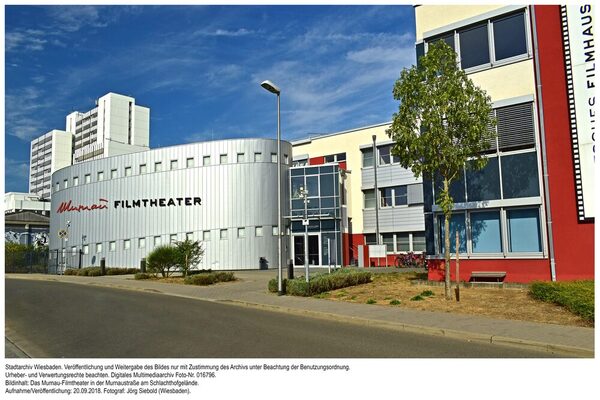Friedrich Wilhelm Murnau Foundation
Since its establishment in 1966, the foundation, named after the director Friedrich Wilhelm Murnau (1888-1931), has been committed to preserving and maintaining a significant part of Germany's film heritage.
The foundation houses a unique, self-contained film stock comprising copies and materials from the former production companies Ufa, Universum-Film, Bavaria, Terra, Tobis and Berlin-Film from over six decades of German film production. The collection ranges from the beginning of moving pictures to the early 1960s and includes 2,000 silent films, 1,000 sound films and around 3,000 short films, commercials and documentaries. It has set itself the task of preserving and restoring this film heritage and making it accessible to the public.
These include films by important directors such as Fritz Lang, Ernst Lubitsch, Detlef Sierck, Helmut Käutner, Wolfgang Staudte and Friedrich Wilhelm Murnau and classics such as "Nosferatu" (1921), "The Blue Angel" (1930), "The Three from the Petrol Station" (1930), "Münchhausen" (1943) and "Große Freiheit Nr. 7" (1944). "Metropolis" has been part of the UNESCO documentary heritage since 2001. Digital restorations such as "Metropolis", "The Cabinet of Dr. Caligari" and "Varieté" are regularly presented at the Berlinale.
The foundation's highest body is the Board of Trustees, which is made up of representatives from the private film industry and the public sector. Since 2009, the Wiesbaden-based foundation has operated the German Film House, which it built on the grounds of the Schlachthof cultural center. Major companies and institutions in the film and media industry, such as the ZDF regional studio, the Voluntary Self-Regulation of the Film Industry (FSK), the production company Kelvinfilm and the Murnau-Filmtheater, are based here.
